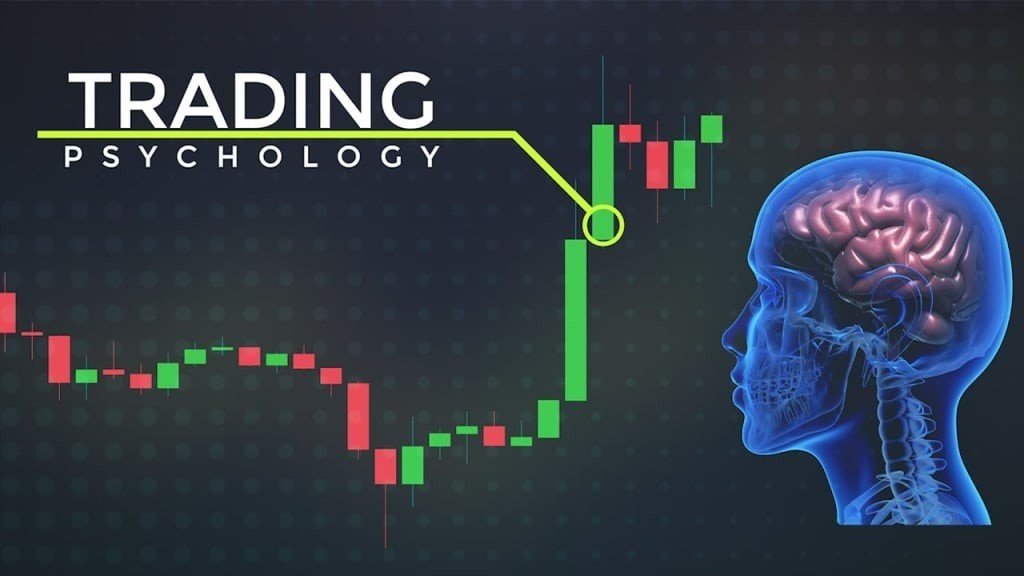-
Introduction
No matter how many charts you analyze or indicators you track, trading will humble you if you don’t have your psychology in check. While technical skills can be learned and strategies can be backtested, it’s your mindset that ultimately decides your success or failure in the markets. Trading isn’t just a numbers game—it’s an emotional rollercoaster. And if you can’t master your emotions, even the most perfect trading plan will collapse under pressure. In this blog, we explore the critical role of psychology in trading and offer deep insights into mastering emotions like fear, greed, hope, and regret.
-
Why Psychology Matters More Than Strategy
You might think the best strategy wins—but ask any seasoned trader, and they’ll tell you: a mediocre strategy executed with discipline will outperform a brilliant one driven by impulse. Psychology is the hidden engine behind consistency. It determines whether you’ll follow your rules or abandon them the moment the market turns against you.
🔸 Emotions drive decision-making more than logic in real-time trading scenarios.
🔸 Fear of loss can make you exit early, missing potential gains.
🔸 Greed can push you to hold too long, turning profits into losses.
🔸 Impatience can lead to overtrading, while hesitation can cause you to miss high-probability entries.
Without emotional control, traders often sabotage their own setups by second-guessing their plans or chasing revenge trades. The real battle isn’t with the market—it’s with yourself.
-
Common Psychological Traps Traders Fall Into
The market plays mind games. Here are some common traps even experienced traders fall into:
🔸 Fear of Missing Out (FOMO): This happens when you see a stock rallying and feel like you’re the only one not making money. It usually results in chasing trades too late and entering at bad prices.
🔸 Overconfidence Bias: After a few winning trades, many traders feel invincible. This leads to oversized positions, lack of risk management, and eventually—painful losses.
🔸 Loss Aversion: Studies show that people hate losing more than they love winning. This leads traders to hold losing trades too long in the hope they’ll recover, turning manageable losses into account killers.
🔸 Confirmation Bias: Traders often seek out information that confirms their existing bias rather than challenging their views. This keeps them locked into bad trades and blinds them to what the market is actually doing.
🔸 Revenge Trading: After a loss, some traders try to win it back quickly, leading to emotionally driven, impulsive decisions that usually dig a deeper hole.
-
How to Master Emotions in Trading
Becoming a psychologically strong trader isn’t about being emotionless—it’s about recognizing emotions and not acting on them. Here’s how to build that mental muscle:
🔸 Use a Trading Journal: Track every trade—not just the numbers, but your mindset and emotional state. Over time, patterns will emerge, showing you your psychological weak points.
🔸 Create a Trading Plan and Stick to It: A trading plan is your emotional anchor. When you’ve predefined your entry, stop-loss, and target—decisions become mechanical, not emotional.
🔸 Practice Risk Management Religiously: Never risk more than 1–2% of your capital on a single trade. Small risks mean your emotions stay in check because one trade can’t break you.
🔸 Take Breaks After Big Wins or Losses: Emotional extremes—whether euphoria or frustration—can cloud judgment. Step away, reset, and come back with a clear head.
🔸 Meditation and Visualization: Daily mental conditioning through mindfulness or visualizing successful trades can improve focus, emotional regulation, and execution.
-
The Importance of Emotional Detachment
The best traders treat the market like a probability game—not a personal war. They don’t fall in love with their positions, nor do they take losses personally. Emotional detachment means:
🔸 You accept that losses are part of the game.
🔸 You don’t celebrate every win or mourn every loss.
🔸 You focus on execution quality over short-term results.
By treating every trade as just one of many, you prevent single trades from dictating your mood or confidence. This long-term mindset is what creates consistency.
-
Training the Trader’s Mindset
Like going to the gym, building psychological strength takes repetition and time. No one is born a disciplined trader—it’s a learned skill. Here are daily habits that can build a strong trader’s mind:
🔸 Pre-Market Rituals: Review your trade setups, market news, and mental state. Visualization and breathing exercises can set the tone.
🔸 Post-Market Reflection: Review trades to analyze whether you followed your rules—not just whether you won or lost. Detach performance from process.
🔸 Continuous Learning: Read books on trading psychology, listen to trader podcasts, and stay connected with trader communities. The more aware you are, the more in control you become.
🔸 Simulated Practice: Paper trading or using a demo account to practice execution without financial risk is a powerful way to strengthen habits without the emotional noise.
-
Conclusion: Master Your Mind, Master the Market
Markets will always be unpredictable. Your strategy might not always work. But the one constant you can control is you. The greatest traders in the world didn’t get there by mastering every indicator—they got there by mastering themselves. When you eliminate emotional decision-making and replace it with discipline, awareness, and a structured approach, the market becomes less of a battlefield and more of a game of probabilities.
Remember: your biggest edge in trading isn’t a secret strategy—it’s a calm, focused mind.




